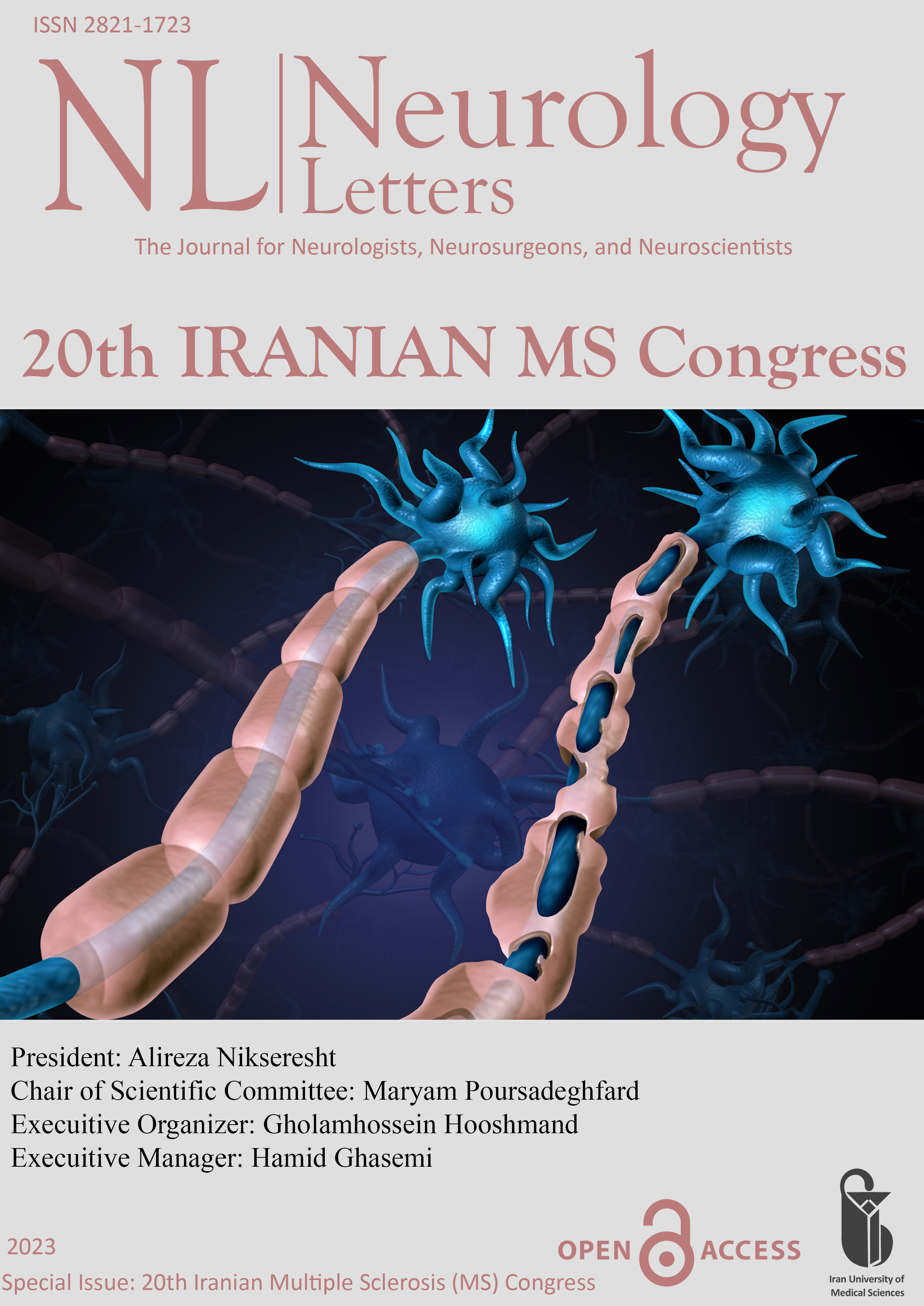Patients monitoring during treatment with Teriflunomide (ORP-41)
Document Type : Oral Presentation
Author
Department of Internal Medicine, School of Medicine, Shohadaye Ashayer Hospital, Lorestan University of Medical Sciences, Khoramabad, Iran
Abstract
These treatments may be used as sequential monotherapies or for escalation or induction strategies based on the efficacy and safety measures showed significant reductions in disability progression, relapse rates,and magnetic resonance imaging measures of disease activity. In keeping with this primary MoA, teriflunomide acts to impair the proliferation of activated T and B cells, and reduces their ability to participate in a potentially damaging immune attack on the CNS.
We found that older adults with MS who switched to teriflunomide from other DMTs exhibited significantly reduced ARR after 2 years. Patients with severe renal impairment undergoing dialysis were not evaluated. Teriflunomide is contraindicated in this population, and dosage adjustment is necessary for patients with mild and moderate hepatic impairment. Teriflunomide is contraindicated in patients with severe hepatic impairment. Elevations of liver enzymes have been observed in patients receiving teriflunomide. These elevations occurred mostly within the first 6 months of treatment. Liver enzymes should be assessed before initiation of teriflunomide therapy - every two weeks during the first 6 months of treatment, and every 8 weeks thereafter or as indicated by clinical signs and symptoms such as unexplained nausea, vomiting, abdominal pain, fatigue, anorexia, or jaundice and/or dark urine. For ALT (SGPT) elevations between 2- and 3-fold the upper limit of normal, monitoring must be performed weekly Mild increases in transaminase, ALT below or equal to 3-fold ULN were more frequently seen in teriflunomide-treated groups as compared to placebo. The frequency of elevations above 3-fold ULN and higher was balanced across treatment groups. These elevations in transaminase occurred mostly within the first 6 months of treatment and were reversible after treatment cessation. The recovery time varied between months and years.
Elevation of blood pressure may occur during treatment with teriflunomide. Blood pressure must be checked before the start of teriflunomide treatment and periodically thereafter. ILD and worsening of pre-existing ILD have been reported during treatment with leflunomide, the parent compound of teriflunomide. Alopecia was reported as hair thinning, decreased hair density, hair loss, associated or not with hair texture change. Overall, teriflunomide therapy does not seem to have a clinically relevant impact on vaccine response .
There are limited amount of data from the use of teriflunomide in pregnant women. Studies in animals have shown reproductive toxicity . Teriflunomide may cause serious birth defects when administered during pregnancy. Teriflunomide is contraindicated in pregnancy.
Teriflunomide is found in semen. The manufacturer recommends that males and their partners should use reliable contraception during therapy. The rapid elimination procedure should be used in males who are planning to conceive.
Keywords
 Neurology Letters
Neurology Letters
